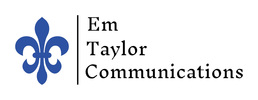Following from my January 2020 post about the perils of giving conflict advice, I interviewed today on BYU Radio about the same topic (click for the full interview). After my interview, I reflected on how important it is that we understand who we are in a relationship, especially when someone's coming to us for advice or an opinion. When I have authority over someone at home, work, or the community, I need to be extra cautious about giving any kind of advice because my counsel carries so much weight--oftentimes far too much weight or influence. Likewise, if I am in authority or have some kind of social power in a relationship, I need to pay extra attention to listening to counsel or advice from those around me who may not feel or experience power; they may better perceive issues and solutions that are in my blind spots.
Power is the ability to influence outcomes. In social psychology research, I find it pretty interesting that people in power often do not even take into account the thoughts, feelings, and motivations of those who enjoy less power. In short, powerful people may not even be aware of the types of counsel or advice those in lower power positions might have to offer.
So, as an afterthought to the interview, I recommend that we listen carefully to the advice and counsel of those in lower positions of power, and be extremely hesitant to dole out advice from a position of power. In either situation, we must be careful to take ownership for our own issues and counsel well and collaboratively with all players in group conflicts that involve people of differing positions of power and influence. In my perspective, the best group conflict outcomes will reflect consideration for multiple perspectives. A few of my thoughts for the day.
Power is the ability to influence outcomes. In social psychology research, I find it pretty interesting that people in power often do not even take into account the thoughts, feelings, and motivations of those who enjoy less power. In short, powerful people may not even be aware of the types of counsel or advice those in lower power positions might have to offer.
So, as an afterthought to the interview, I recommend that we listen carefully to the advice and counsel of those in lower positions of power, and be extremely hesitant to dole out advice from a position of power. In either situation, we must be careful to take ownership for our own issues and counsel well and collaboratively with all players in group conflicts that involve people of differing positions of power and influence. In my perspective, the best group conflict outcomes will reflect consideration for multiple perspectives. A few of my thoughts for the day.


 RSS Feed
RSS Feed